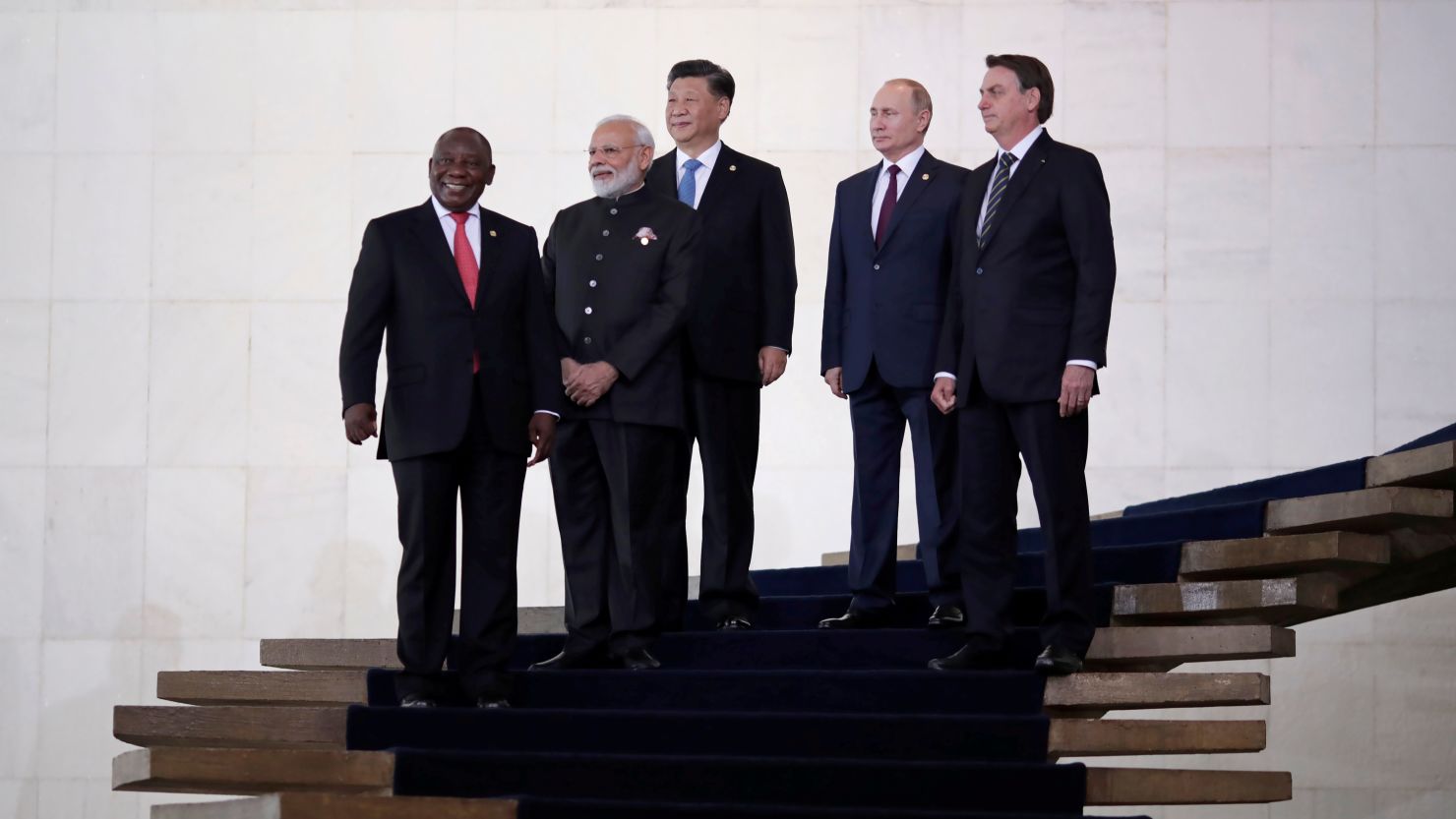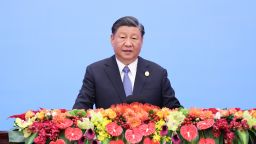Editor’s Note: Sign up for CNN’s Meanwhile in China newsletter which explores what you need to know about the country’s rise and how it impacts the world.
Nearly three dozen countries are seeking entry into the China and Russia-backed BRICS economic group, member state South Africa said Wednesday, weeks after the body expanded its membership for the first time in more than a decade.
Thirty-four countries have submitted an expression of interest in joining the bloc of major emerging economies, South African Foreign Minister Naledi Pandor told reporters, without naming the nations.
Russia was accepting those applications after assuming rotating chairmanship of the group this year – and will be the first member to oversee the body since it significantly expanded its global footprint at the start of the year, when Iran, Saudi Arabia, the United Arab Emirates (UAE), Ethiopia, and Egypt formally joined.
The growing membership is widely viewed as a win for China and Russia, which have sought to reshape an international system they see as unfairly dominated by the United States amid growing frictions with Washington and the West.
BRICS, which since 2011 had been made up of Brazil, Russia, India, China and South Africa, roughly positions itself as the Global South’s answer to the Group of Seven (G7) major developed economies.
China has been a key driver of its expansion as leader Xi Jinping pushes an alternative world order, forging closer partnerships with key global players from Russia to the Middle East and strengthening international bodies where Beijing holds sway.
The expansion and continued interest from dozens more countries are also a boon for Russia, which has been shunned economically and diplomatically by the West following its invasion of Ukraine.
Moscow’s position as chair will be a key opportunity for Russian President Vladimir Putin to push back against that isolation and portray himself as a key player on a broad diplomatic stage, as world leaders typically travel to the host nation for an annual summit.
Last year, all member state leaders besides Putin gathered in person in Johannesburg. The Russian president, who has an International Criminal Court warrant out for his arrest linked to alleged war crimes in Ukraine, participated virtually.
This year’s event is expected to take place in October in the southwestern Russian city of Kazan.
Earlier this year, Putin encouraged representatives “of all countries interested in cooperating with our organization” to take part in events and said Russia looked forward to “working productively with all countries in the BRICS orbit,” according to state-run news agency Tass.
The group took shape as a summit-level gathering between Brazil, Russia, India and China in 2009 and expanded to include South Africa two years later.
Six new BRICS countries were invited during the 2023 summit last August. Among those invited only Argentina declined to join, following the election of a new far-right administration.
The expansion adds the muscle of major oil-producing Gulf economies to the body and comes as both Russia and China have bolstered their relationships with sanctions-hit Iran. Last year, Beijing played a part brokering the restoration of ties between longtime rivals Saudi Arabia and Iran.
The new cohort of countries join as BRICS pushes toward more diplomatic and financial coordination, including reform of the United Nations Security Council and a move away from a US dollar-dominated trade system.
Finance ministers were working to develop the use of local currencies for payments between member states and international payment platforms to “redress what we regard as a rather unfair and costly payment system,” South Africa’s Pandor said Wednesday.
CNN’s Zahid Mahmood in London contributed reporting.


